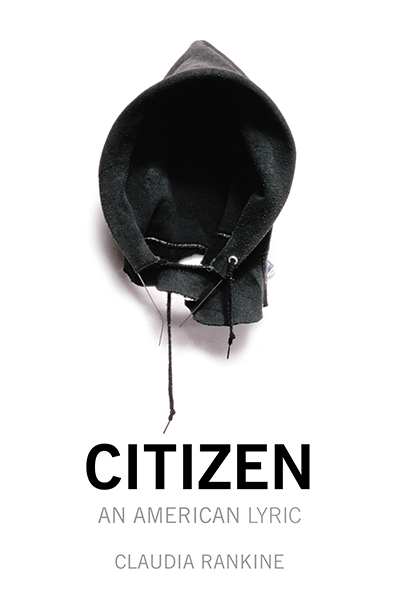

The next photos show a pattern of close-up shots of white men and bars on windows and generally being enclosed. "James Craig Anderson is dead" becomes the anthem of the final stanzas (85). It's not a hoodlum driving the truck, either: it is "just teens," no gang, "just a teen," "with straggly blond hair," "a slight blond man" (84). The truck has run over a black person, and the aural landscape would suggest that it is proud of this. "J/ In Memory of James Craig Anderson," the third poem, puts together an image of a pickup truck that, through juxtaposition, creates a black object. A black-and-white photo of many white people gathered under the base of a tree features one man in the center who points up at the darkness that is cut off by the photo's edge. The narrator is on the phone with her brother, continuing to talk though he has all but hung up the phone. A pink dawn offers a different path away from the terrible history of segregation, poverty, felonies, hanging, and the metaphor of a lynching tree as having taken root in the body. She distinguishes this verbiage from going to prison. The second poem, "Febru/ In Memory of Trayvon Martin," the narrator asserts that her brothers, who are notoriously normal, doing things like waiting and saying the narrator's name on her birthday, have been imprisoned. An abstract painting, showing a black male made of bright gold and blue riveted metals, finishes this poem. A man ponders what the water wanted, as if this tragedy were in the past and not the present. Their story has not ended, not even with their homecoming, upon which they found their dead child. In the midst of emergency, nobody is to be found and it is hard to separate this occasion from the many that divide the haves and have-nots. The first poem contrasts the "fiction of facts" which "assumes randomness and indeterminacy" with the necessity of visual presence (73-75).

This section is broken into segments, beginning with one entitled "Aug/ Hurricane Katrina." These poems are the basis of a video collaboration called Situations, as well.


 0 kommentar(er)
0 kommentar(er)
